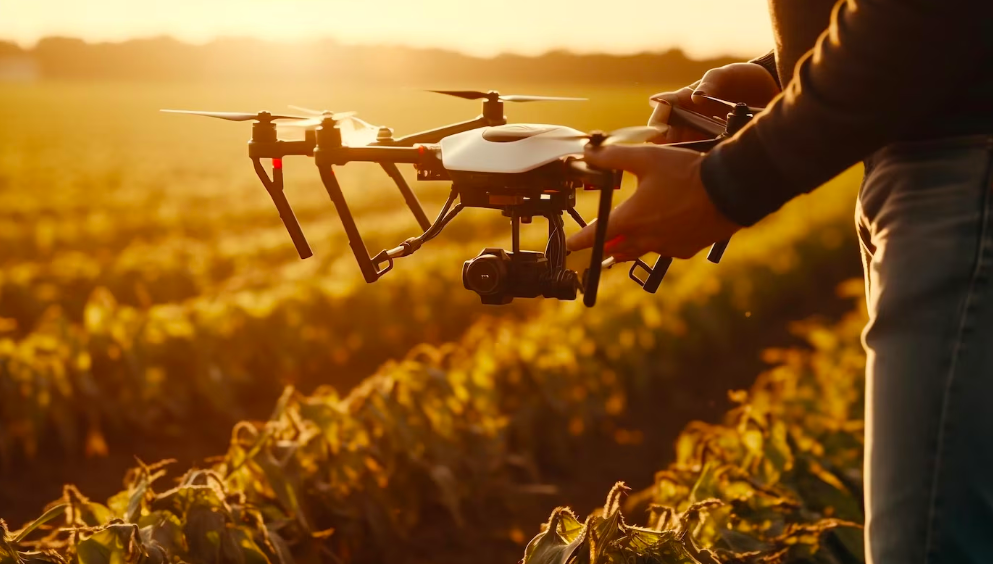How AI is Making Farming Smarter and More Sustainable

Artificial intelligence (AI) is rapidly transforming agriculture. From improving crop yields to reducing water usage, AI is being used to make farming more sustainable and efficient.
Here are some of the ways that AI is being used in agriculture:
- Precision agriculture: AI can be used to collect and analyze data about crops, soil, and weather conditions. This data can be used to make better decisions about planting, watering, and fertilizing crops.
- Robotics: AI can be used to develop robots that can perform tasks such as weeding, harvesting, and packing produce. This can help to reduce labor costs and improve efficiency.
- Drones: AI can be used to develop drones that can survey fields, monitor crops, and apply pesticides. This can help to improve crop yields and reduce the use of chemicals.
- Machine learning: AI can be used to develop machine learning models that can predict crop yields, identify pests and diseases, and optimize farming practices.
- Big data: AI can be used to analyze big data sets to identify patterns and trends that can be used to improve farming practices.
These are just a few of the ways that AI is being used in agriculture. AI has the potential to revolutionize agriculture and make it more sustainable and efficient.
The future of AI in agriculture is bright. With continued research and development, AI is poised to play an even greater role in agriculture in the years to come.
Here are some of the potential benefits of AI in agriculture:
- Increased crop yields: AI can help to increase crop yields by optimizing farming practices and reducing crop loss.
- Reduced water usage: AI can help to reduce water usage by optimizing irrigation practices and detecting water leaks.
- Improved soil health: AI can help to improve soil health by monitoring soil conditions and applying nutrients as needed.
- Reduced use of pesticides and herbicides: AI can help to reduce the use of pesticides and herbicides by identifying pests and diseases early on and using targeted treatments.
- Sustainable farming practices: AI can help farmers to adopt more sustainable farming practices, such as crop rotation and cover cropping.
The adoption of AI in agriculture is still in its early stages, but it is growing rapidly. As AI technology continues to develop, it is likely to play an increasingly important role in agriculture.
Here are some of the challenges that need to be addressed in order to fully realize the potential of AI in agriculture:
- Data availability: AI systems need access to large amounts of data in order to train and operate effectively. This can be a challenge in agriculture, where data collection can be expensive and time-consuming.
- Cost: AI systems can be expensive to develop and deploy. This can be a barrier for small-scale farmers.
- Acceptance: Some farmers may be hesitant to adopt AI technologies due to concerns about reliability and safety.
- Regulation: As AI becomes more widely used in agriculture, there will be a need for new regulations to ensure that it is used responsibly and ethically.
Despite these challenges, the potential benefits of AI in agriculture are significant. With careful planning and execution, AI can help to make farming more sustainable, efficient, and productive.


